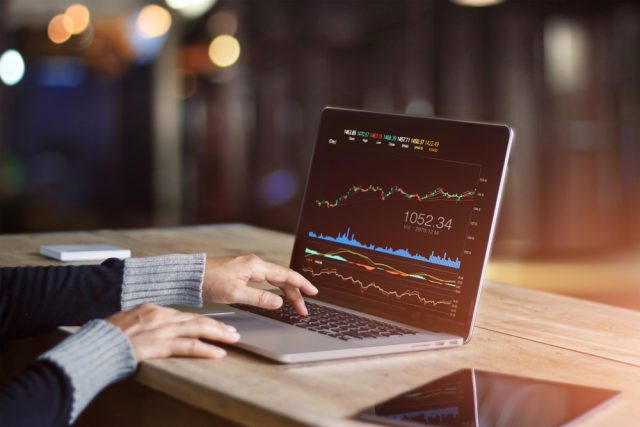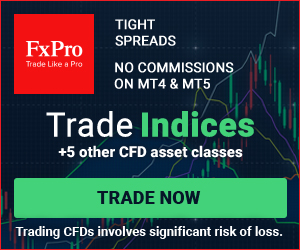Fear and greed are actually two of the main driving forces in our lives at the moment. They carry over to our investments and this can be very detrimental. As a trader, you may find that you are focusing on these rather than looking at the bigger picture. Greed and fear is often identified as being one of the main driving forces behind the financial market. This is an oversimplification to say the least, but it’s important to note that they do have a huge part to play when you look at the psychology of trading. You have to understand what to embrace and what to tame as these emotions could actually mean the difference between a successful trade and one that is incredibly short-lived.
The Truth
Fear can be a common emotion for those who trade, and it can be super damaging if you do not try and manage it properly. Fear is often seen because traders are reluctant to enter a market, and they also close a trade prematurely as well. Greed manifests when a lot of traders try and win more than they should, even given the huge amount of risk. When you choose to analyse the logistics of trade and greed on a logical basis, you will find that they stem from the instinct of survival.
What is Fear?
Everyone knows that fear is related to the instinct of fight or flight, and it does live in every single one of us. Traders experience fear when positions move against them and this can pose as a serious threat when you look at trading accounts. When you watch a position move against you for example, this will invoke the feeling of fear and you also have to worry about the threat of the trading account too. You may come to the conclusion that this means losing out, so you may be tempted to hold onto a trade for longer than you should. A survey was done, and it showed that this is the one mistake that a lot of traders make.
A second scenario is where fear tends to get the better of traders right before they enter the market. Sure, analysis may point to very strong entry, but traders often find themselves being bogged down by fear and loss, and they also end up walking away without any additional train of thought. Fear is often present when a market has crashed or even when traders are reluctant against buying at the bottom. They decide not to enter a trade because they are worried about the market and this also means that they are going to be missing out on the rise higher too.
What about Greed?
Greed is actually completely different to fear. That being said, it can land traders in a ton of hot water. This is especially the case if you do not manage it appropriately. It tends to rise when a trader chooses to take advantage of a winning trade by trying to devote money. They hope that the market is going to carry on moving in their favor, but this doesn’t always happen. Greed can also surface when a lot of traders experience some kind of losing trade. They consider doubling down and this is because they hope that by throwing even more money at the problem, they can then help to turn their situation into something much more positive. When you look at risk management, you will soon find that this is risky to say the least and this is especially the case if the market carries on moving against the trader. It also means that it can turn into a margin call too. Greed has most certainly appeared a lot of times in the financial market and one time was when the dot com bubble came about. Traders bought more and more stocks, and this inflated the price of them by a huge amount. Everything then came crashing back down and this led to a huge disaster for a lot of traders. Another example of this is actually with Bitcoin.
How to Manage It
It is important to know that there are several ways for you to take control of your emotions and there are also ways for you to make sure that greed and fear do not influence your trading decisions at all. If you want to get some help with that then you can take a look below.
Trading Plan
Traders need to have some kind of trading plan in place as much as possible. This will help them to avoid any kind of emotional damage. You also need to try and stop removing stops, doubling down and even overleveraging.
Trade Sizes
Another way for you to try and avoid the emotional effects of trading would be for you to lower the sizes of the trades that you make. Placing a very big trade on a demo account will not make you lose out on any kind of sleep and the main reason for this is because there is no financial risk at all. You will however experience a ton of stress if you try and deal with the live trade. Stress has the potential to lead to very bad decisions and this may impact the whole trading account on a negative basis. For this reason, you need to try and keep this in check as much as you possibly can.
Trading Journals
Traders need to make sure that they are more than accountable when trading. The best and the easiest way for you to do this would be for you to try and create some kind of trading journal. Trading journals help people to make their trades and it also gives them the chance to find out what is working and what isn’t. It removes a lot of the emotion from it and it also gives you the chance to see the results that you might be achieving too.
Learn from Others
Emotion will always play a huge part in trading, but on average, traders always lose out on more money when they believe that they are winning trades more than they are losing them. When the market is against them, they acted as if they wanted it to move in their direction. If you want to tackle greed and fear then you need to make sure that you keep your emotions in check and you also need to try and focus on trading the market how it is, rather than how you want it to be.





